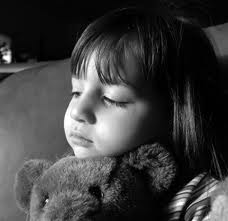Children in the foster-care system: New research on the caregiving-self-regulation link
 Dozier, M., Zeanah, C., & Bernard, K. (2013). Infants and toddlers in foster care. Child Development Perspectives, 7(3), 166-171.
Dozier, M., Zeanah, C., & Bernard, K. (2013). Infants and toddlers in foster care. Child Development Perspectives, 7(3), 166-171.
summarized by UMB clinical psychology doctoral student Laura Yoviene
Introduction:
It is unfortunately an all too common experience that infants and young children in the child welfare system have experienced some form of maltreatment and disruptive relationships with their primary caregivers. It is during this early phase of development that primary care givers, generally parents, play a critical role in the development of a child’s regulatory behaviors (i.e., physiology, behavior, and emotions) (Hertsgaard, Gunnar, Erickson, & Nachmias, 1995; Hofer, 1994, 2006). This article discusses the key caregiving principles for vulnerable youth: synchrony, nurturance, stability of care and commitment. The authors review two intervention programs that help focus on various aspects of these caregiving techniques and examine the benefits for children in out-of-home care.
Important Caregiving Principles:
- Synchrony: parents who follow children’s lead in interactions, lead to stronger self-regulatory capabilities in children (e.g., Raver, 1996; Rocissano, Slade, & Lynch, 1987)
- Nurturance: when parents are consistently responsive and emotionally available to help their children in a time of distress, this helps develop secure attachment styles
- “children who experience disruptions in care after about a year of age are especially likely to turn away from their caregivers rather than seek them when distressed…(this) elicits rejecting behavior by caregivers.”
- Stability of Care: children who experience more disruptions/changes in care can show deficits in executive functioning, particularly impulse control (Lewis, Dozier, Ackerman, & Sepulveda-Kozakowski, 2007).
- Commitment: most children are raised by birth or adoptive parents who are fully committed to raising them throughout childhood, however, commitment of foster parents can vary greatly (Dozier & Lindhiem, 2006). When children do not have caregivers who are committed to them, they are at greater risk for negative self-perceptions and problematic behaviors (Ackerman & Dozier, 2005; Lindhiem & Dozier, 2007).
Interventions:
Intervention is necessary for the optimal development of most children in foster care; two model interventions are described below:
- Attachment and Biobehavioral Catch-up (ABC) Intervention: This intervention focused on changing adult behaviors, specifically on developing synchrony and nurturance in caregivers and also aims to reduce their frightening, intrusive, or threatening behavior (Bernard, et al., 2012). The ABC intervention took place over 10 visits at the families’ home. Video feedback and “in the moment” commentary were utilized to show caregivers their interactions with their children and promote positive caregiving behaviors.
- Children whose birth parents or foster parents were in the ABC intervention had more normative cortisol production than the control group
- Foster children in the ABC group showed more advanced executive functioning than the control group
- New Orleans Intervention: is a more comprehensive program that targets all 4 of the important caregiving principles (synchrony, nurturance, stability of care, and commitment), within a greater systems framework. Specifically, the intervention aims to provide integrated mental health services to young children in foster care by advocating for child-centered decision making; this is achieved by improving the quality of information that is provided to both the courts and child-protective services.
- families who participated in this intervention had less subsequent foster care placement (Zeanah, et al., 2001).
- in a follow up, children in the intervention had rates of problem behaviors that were similar to those of children who had not been maltreated (Robinson, et al., 2012)
Conclusion:
Aside from these interventions targeting specific caregiving behaviors, this study demonstrates that “the child welfare system can provide a developmentally sensitive approach to caring for children when they are placed in out of home care.” This paper highlights that the critical issues to consider when working with youth and families in the foster care system are to help foster parents develop parenting behaviors that support children’s secure attachment, development of regulatory capacities, commitment from foster parents, and making placement decisions that have children’s developmental needs at the forefront. Given that reunification with the biological family is the common end goal for youth in foster care, it is also essential to help enhance the parenting skills of birth parents.
Implications:
The results of this study have clear implications for the field of mentoring as they show the importance that the stability of a mentor could play for children in the foster care system; not only can a caring and consistent adult help reduce a child’s problem behaviors, but also help young children develop better regulatory behaviors. Mentors may also be able to act as child-centered advocates to help families and youth navigate the foster care system. Amidst the many changes and disruptions young children in foster care experience, a mentor has the opportunity to be a stable figure in a child’s life which can help provide a more developmentally sensitive approach.








